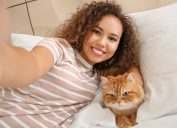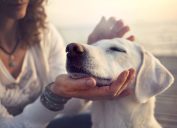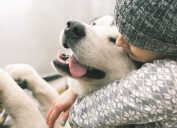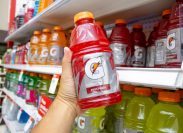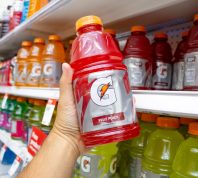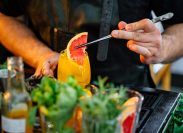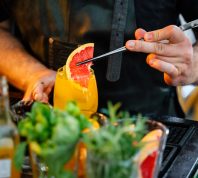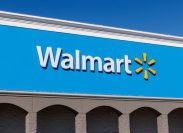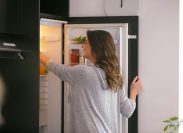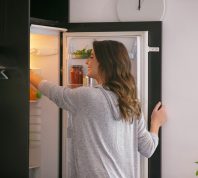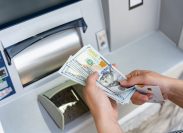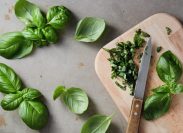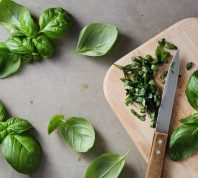17 Household Items That Are Poisonous to Dogs, According to Experts
From daffodils to Drano, these common household staples are toxic to dogs.
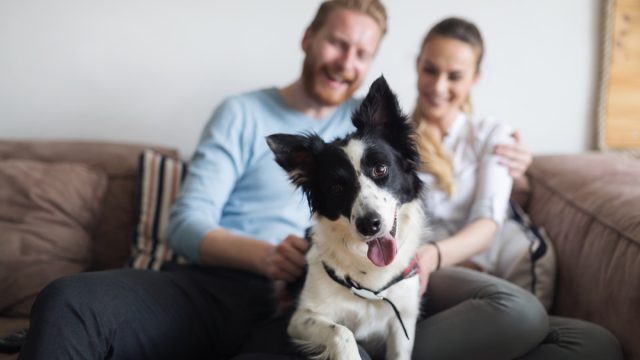
When you own a dog, you always have your pup's best interest in mind. And that means taking precautions to keep your dog far, far away from any potential poisons. Of course, we all know that chocolate is a no-go, but that's not the only common household item that's toxic to your precious pet. In fact, there's a good chance that your home is a veritable minefield of things that are poisonous to dogs. From electronics to everyday cleaners to even some types of greenery, here's everything you should keep out of Fido's reach, according to vets and pet experts.
1
Mothballs
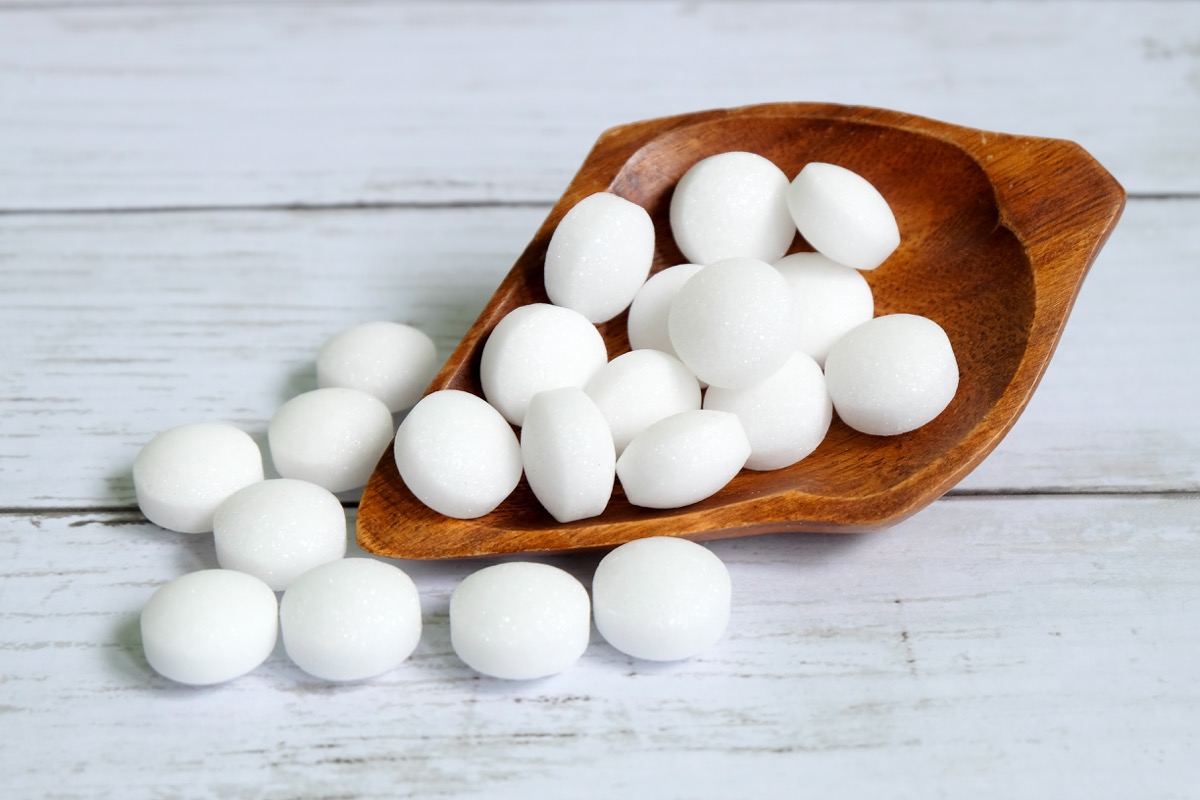
Mothballs are great for preserving your clothing. But, for dog owners, it's just not worth the risk. According to the American Veterinary Medical Association (AVMA), just one mothball can make a dog extremely sick. If the mothballs have naphthalene in them, they can "cause serious illness, including digestive tract irritation, liver, kidney and blood cell damage, swelling of the brain tissues, seizures, coma, respiratory tract damage," or—in extreme cases—death of your beloved dog.
2
Drain Cleaner
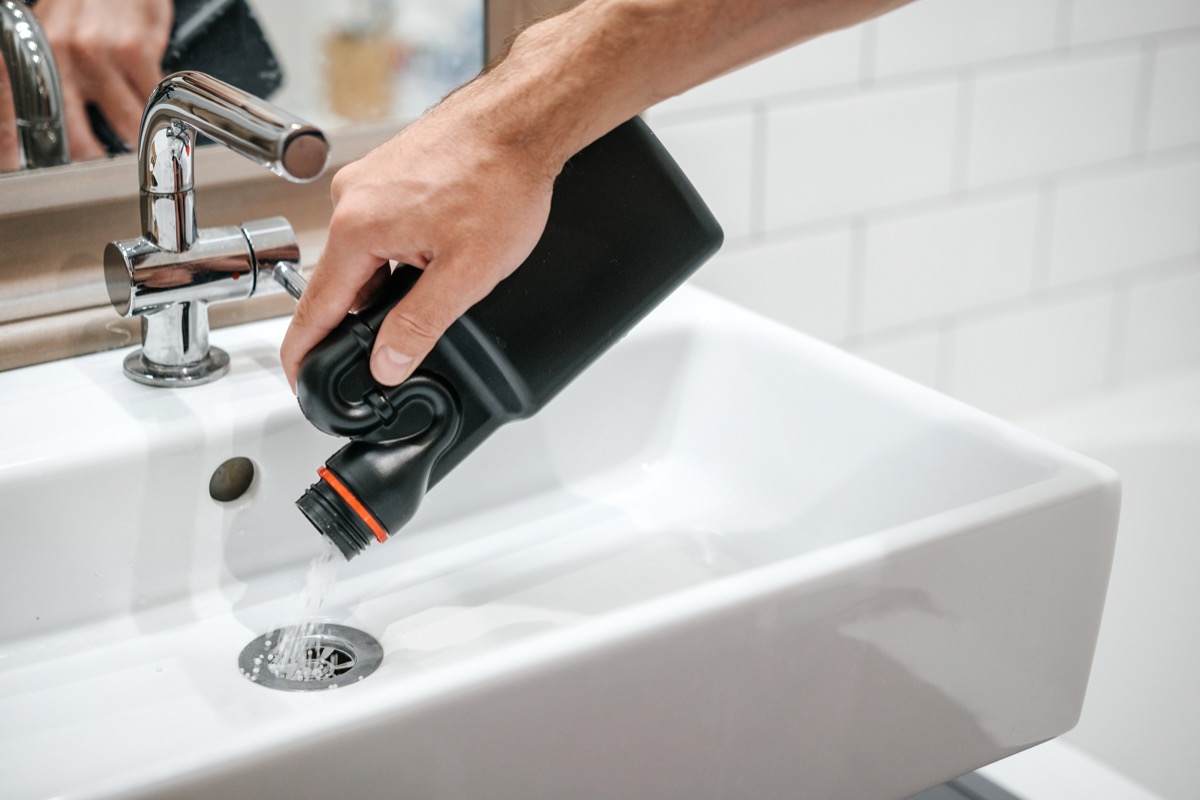
If you own a pet, you shouldn't own drain cleaner. According to Li-ran Bukovza, founder of dog advice site PuppyTip, it's "a caustic chemical blend that works to dissolve tough clogs in drains. By definition, the chemical make-up is extremely toxic, and if your dog is unlucky enough to get ahold of it, it can cause severe topical burns just by coming into contact with his skin." If you must own a bottle, store it in an area your pup can't get to—and also be sure to quarantine any room in which you use it. You don't want Rover licking it off the sink!
3
Batteries
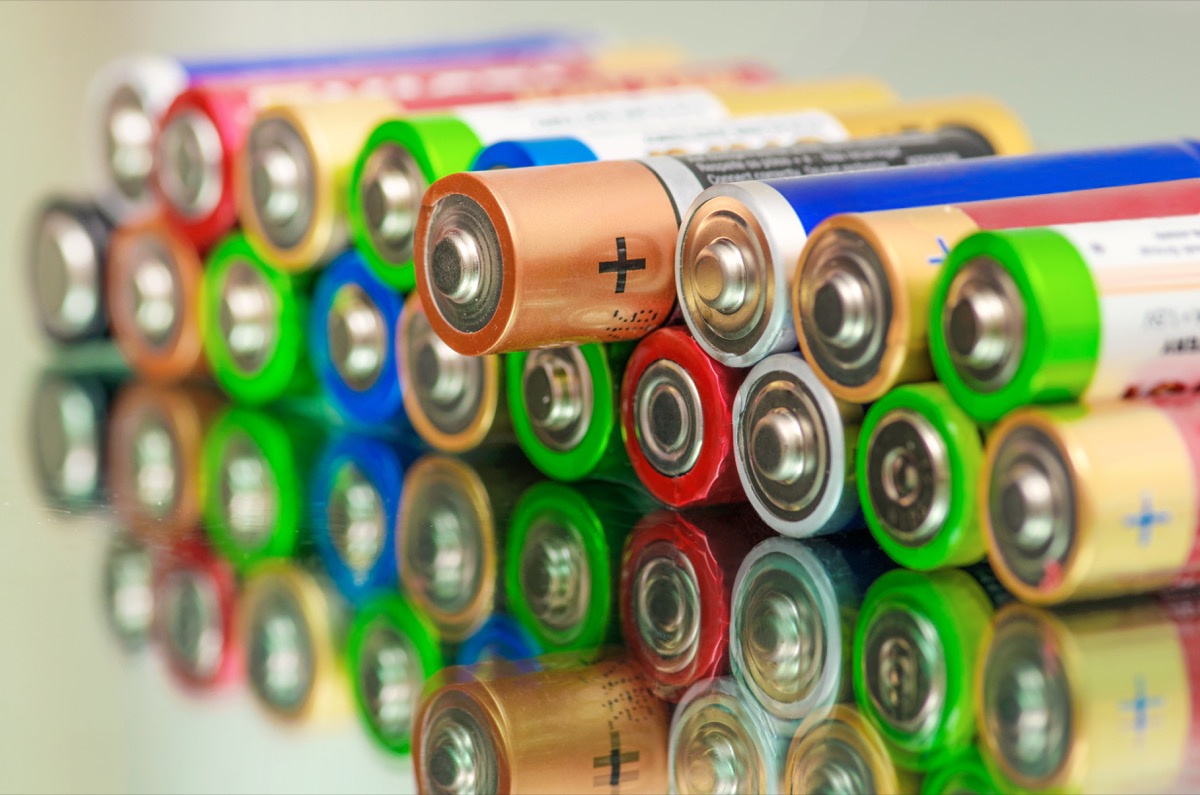
Batteries are often a necessity for various technologies inside your house, but don't keep extras within reach of your pup's paws. According to Bukovza, your dog typically won't ingest batteries, but just them licking or coming into contact with battery acid can cause health issues like ulcers, chemical burns, or swelling of the throat. Any old or leaking batteries should be safely discarded, and unused batteries should be locked up to avoid animal access.
4
Electronic Cigarettes
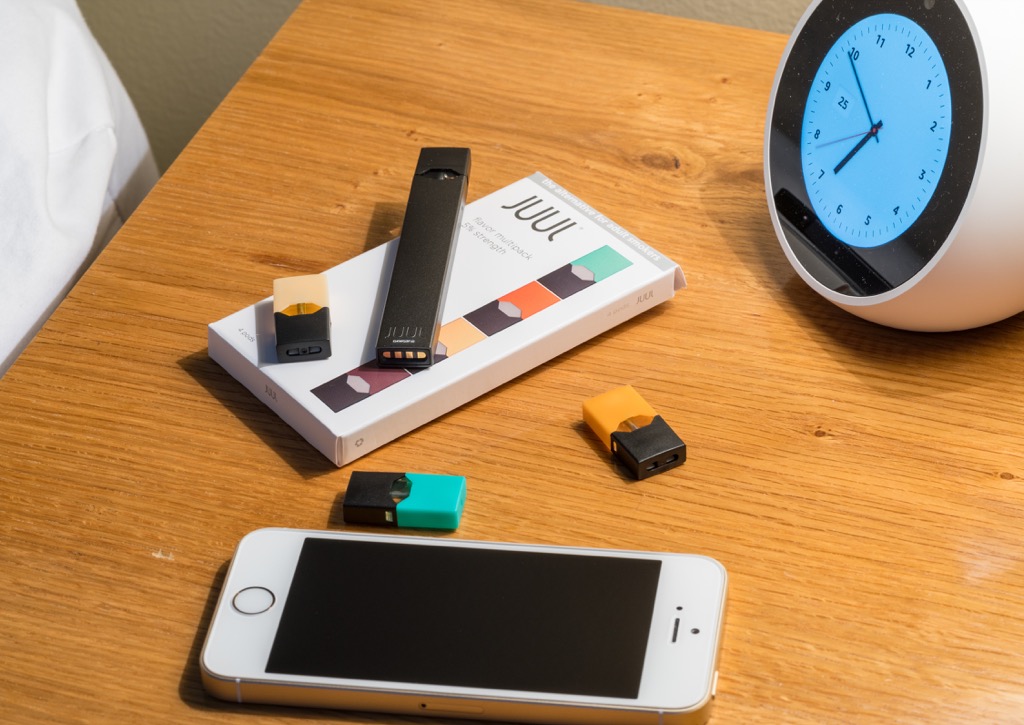
If you use e-cigarettes, consider breaking the habit—or, at the very least, limiting your vaping to outdoor areas only. According to the People's Dispensary for Sick Animals (PDSA), the liquid inside of e-cigarettes is very toxic to animals because it contains high levels of nicotine. With their tempting scents, the liquid inside of e-cigarettes easily attracts pets, and just a small amount can be highly poisonous to dogs.
5
Rodenticides
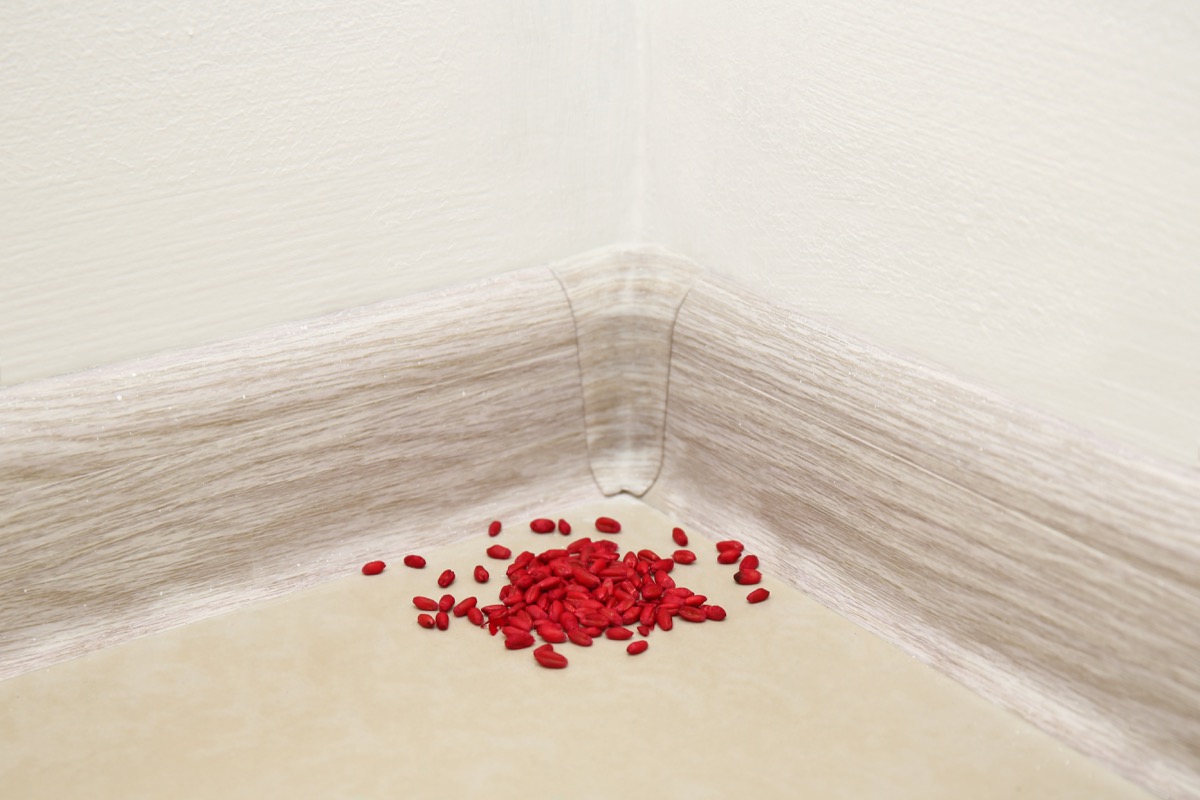
Avoid bringing rodenticides into your home if you own a dog. While you may think they're only poisonous to the rats or mice you're trying to get rid of, they're also very dangerous for your dog. According to Jennifer Coates, DVM, a member of the advisory board for Pet Life Today, these poisons are flavored so they attract rodents—but that also, unfortunately, attracts your pets as well. Just ingesting a small amount can sometimes be fatal. (And if you really want to get rid of mice, consider getting a cat.)
6
Antifreeze
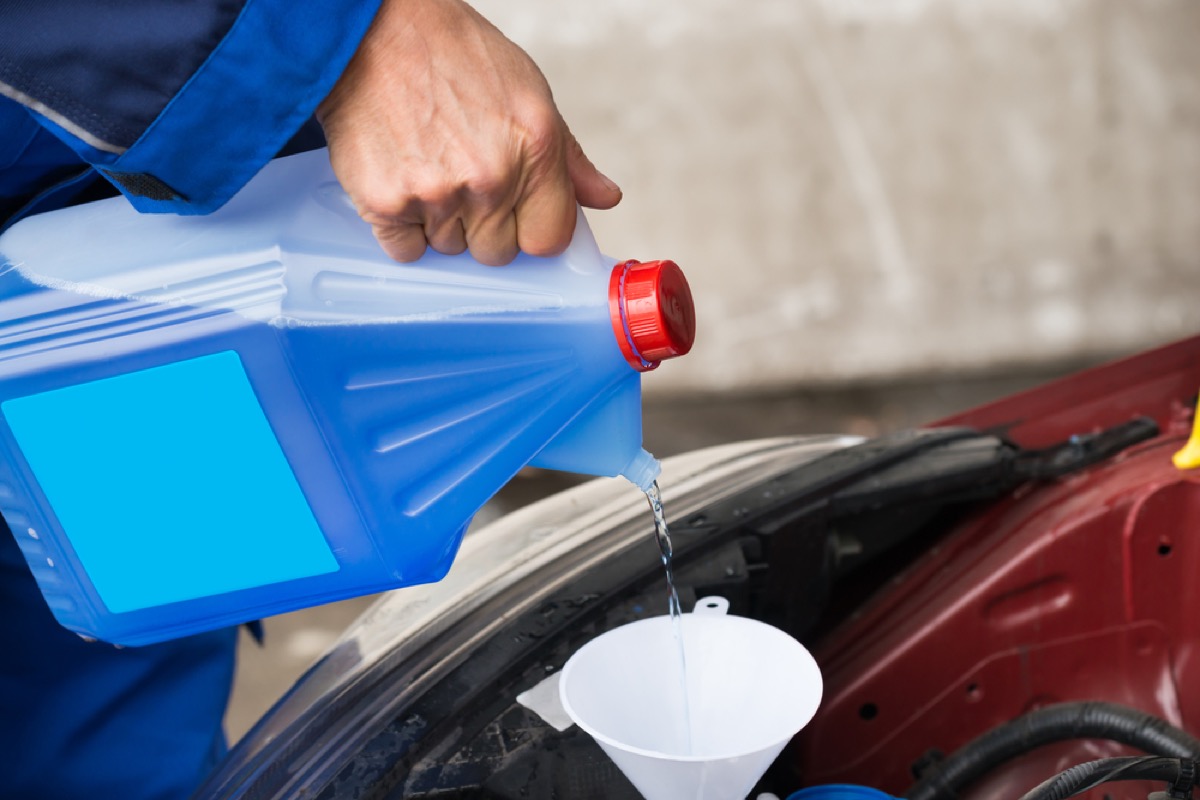
While most humans know not to pop the top of a bottle of antifreeze and down it, the same can't be said for your pup. "Many types of antifreeze contain toxic ethylene glycol while also tasting sweet to dogs. This is a potentially deadly combination, because ethylene glycol ingestion can lead to severe kidney damage," Coates says. "Watch your vehicles for potential antifreeze leaks and consider switching to a safer type that contains propylene glycol rather than ethylene glycol."
7
Various Adhesives
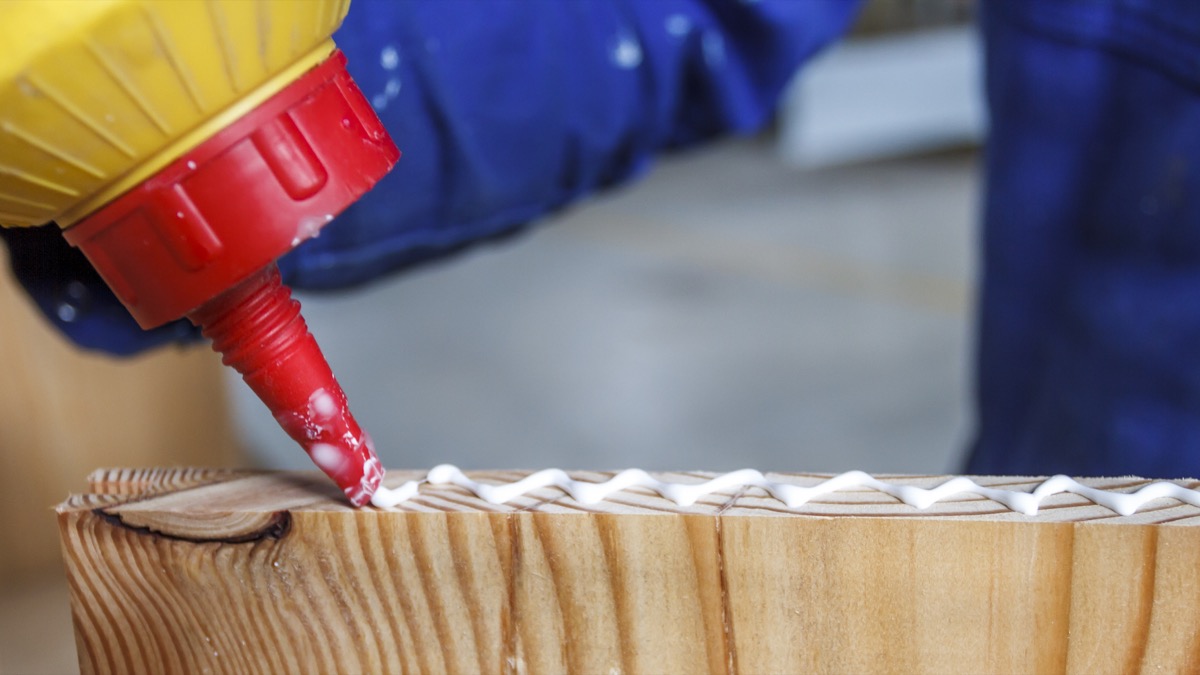
If you plan on doing any remodeling or repair work on your home, be cautious of the type of adhesives you buy. The AVMA warns that polyurethane adhesives are found in many household products, and are dangerous if ingested by a dog.
"In particular, several brands of expanding wood glues—those containing diphenylmethane diisocyanate (often abbreviated as MDI)—have the potential to form obstructive gastrointestinal masses if ingested," the AVMA warns on their website. "The ingested adhesive can form an expanding ball of glue in your pet's esophagus and stomach, creating a firm mass that can be four to eight times the glue's original volume."
8
Certain Plants
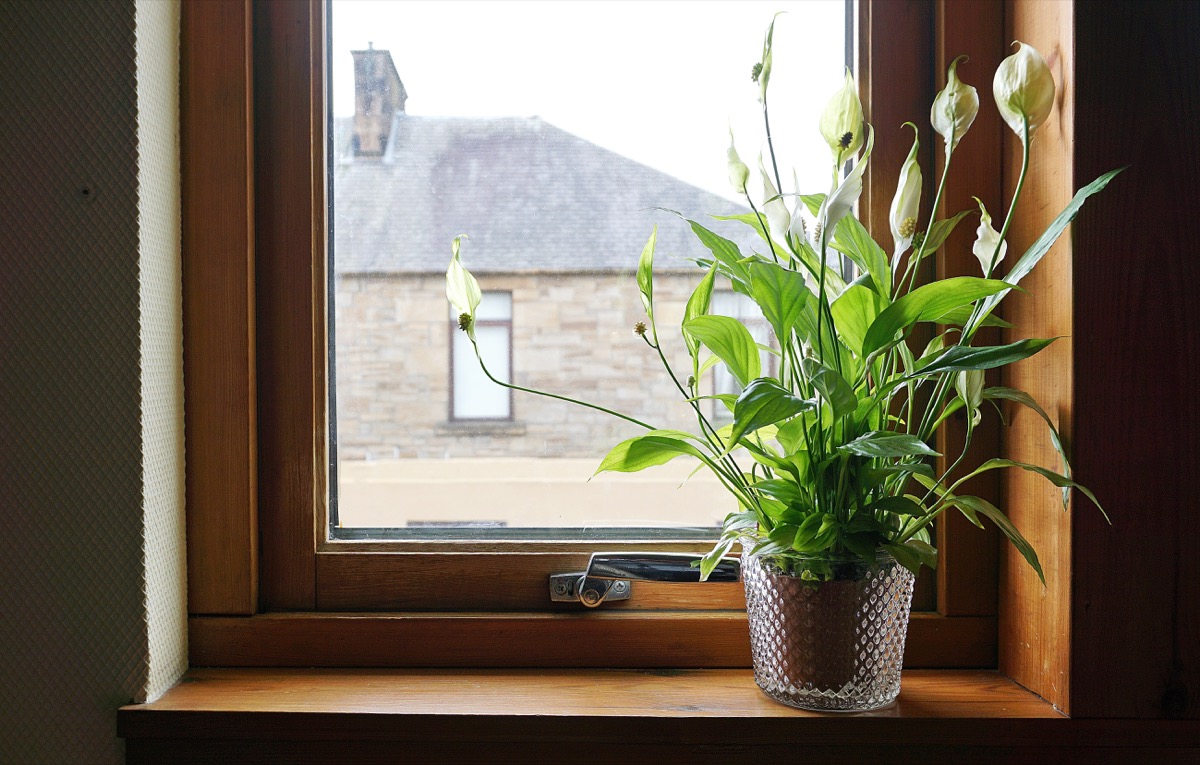
Plants and flowers are a great way to add some beautiful greenery to your home, but if you're a dog owner, you need to think twice about the types of plants you buy. Rachel Barrack, DVM, founder of Animal Acupuncture in New York City, says you should avoid lilies, daffodils, dumb cane, tulips, and holly, as most of these can cause intestinal issues for your dog. The AMVA also warns against sago palms, azalea, rhubarb, and fungi.
9
Chemical Fertilizers
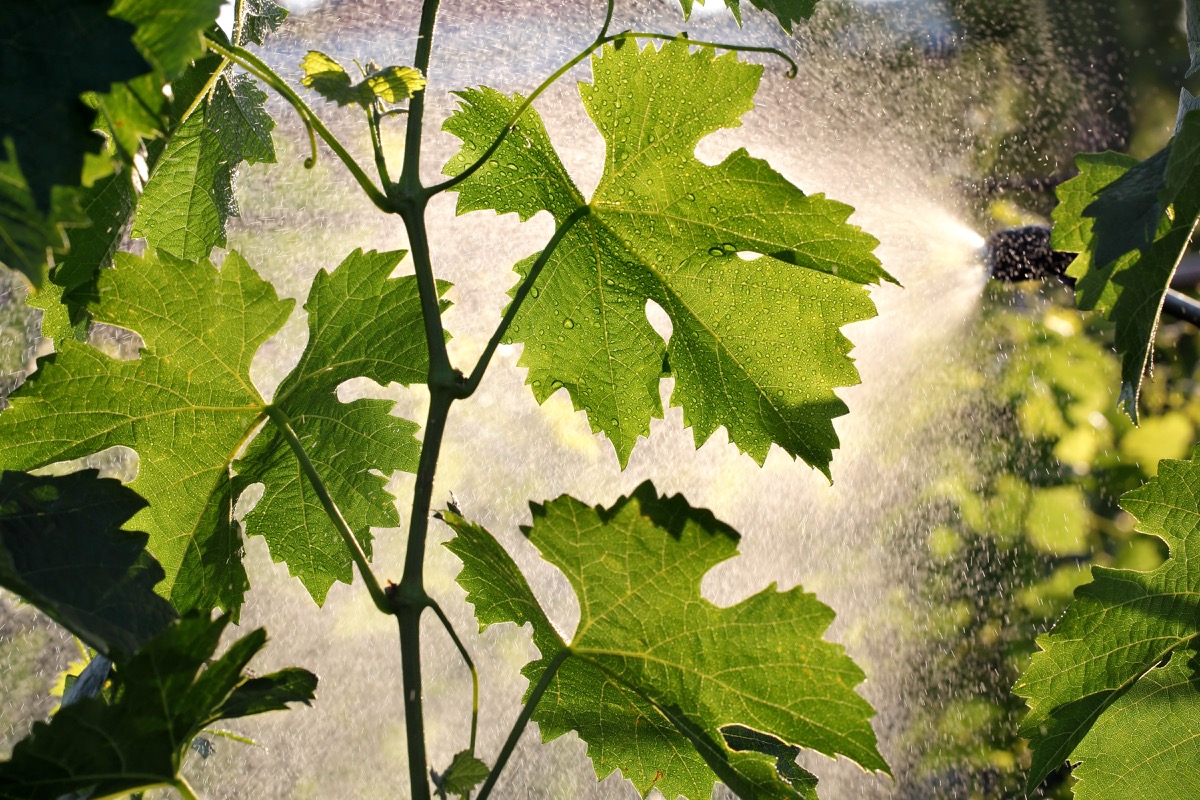
When it comes to keeping your lawn in tip-top shape, don't use chemical fertilizers. "Many allergies blamed on grass are actually reactions to toxic chemical fertilizers placed upon it. The harm done to pets can be amplified, as they are likely to lick and bite feet made itchy by these chemicals," says Cassy Aoyagi, president of FormLA Landscaping in Los Angeles, California. "Organic fertilizers, effective plant placement, and mulching are great alternatives."
10
Cocoa Bean Mulch
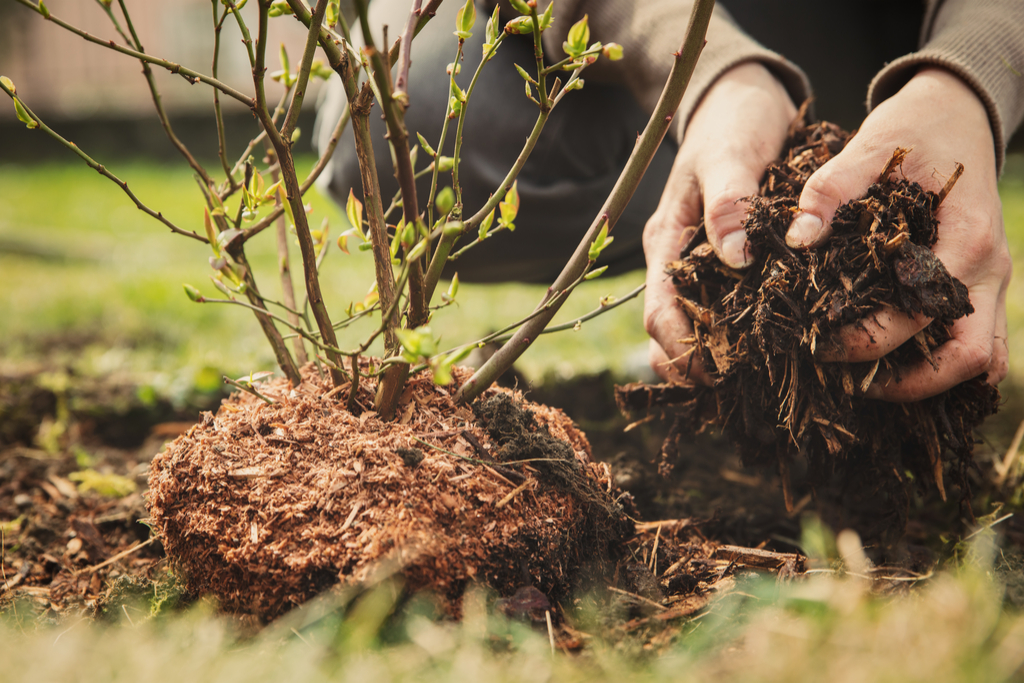
However, if you do decide to use mulch as an alternative to chemical fertilizers, steer clear of cocoa bean mulch. Coates says that "cocoa bean mulch contains the same chemical compounds that make chocolate dangerous for dogs." And while it's a better alternative to the toxicities your dog could ingest from chemical fertilizer, Coates recommends dog owners staying away, seeing as there are still other good alternatives out there.
11
Synthetic Turf
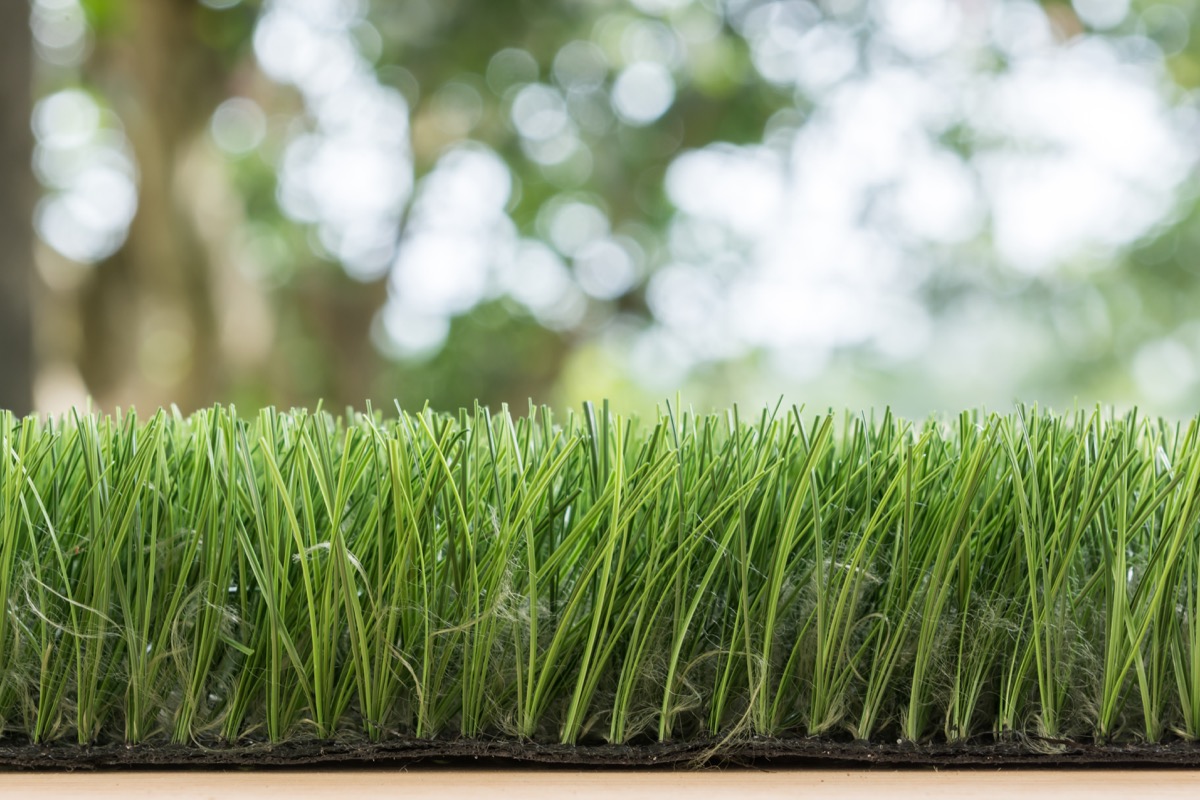
Synthetic turf may make your yard look pristine, all day, every day, but it comes with a high price for puppy parents. "Where natural grasses clean themselves and cool the air, synthetic turf harbors biological hazards from waste and blood, needs hazardous chemicals to clean it, and increases the chances of heat exhaustion," Aoyagi notes.
12
Chemical-Filled Air Scents
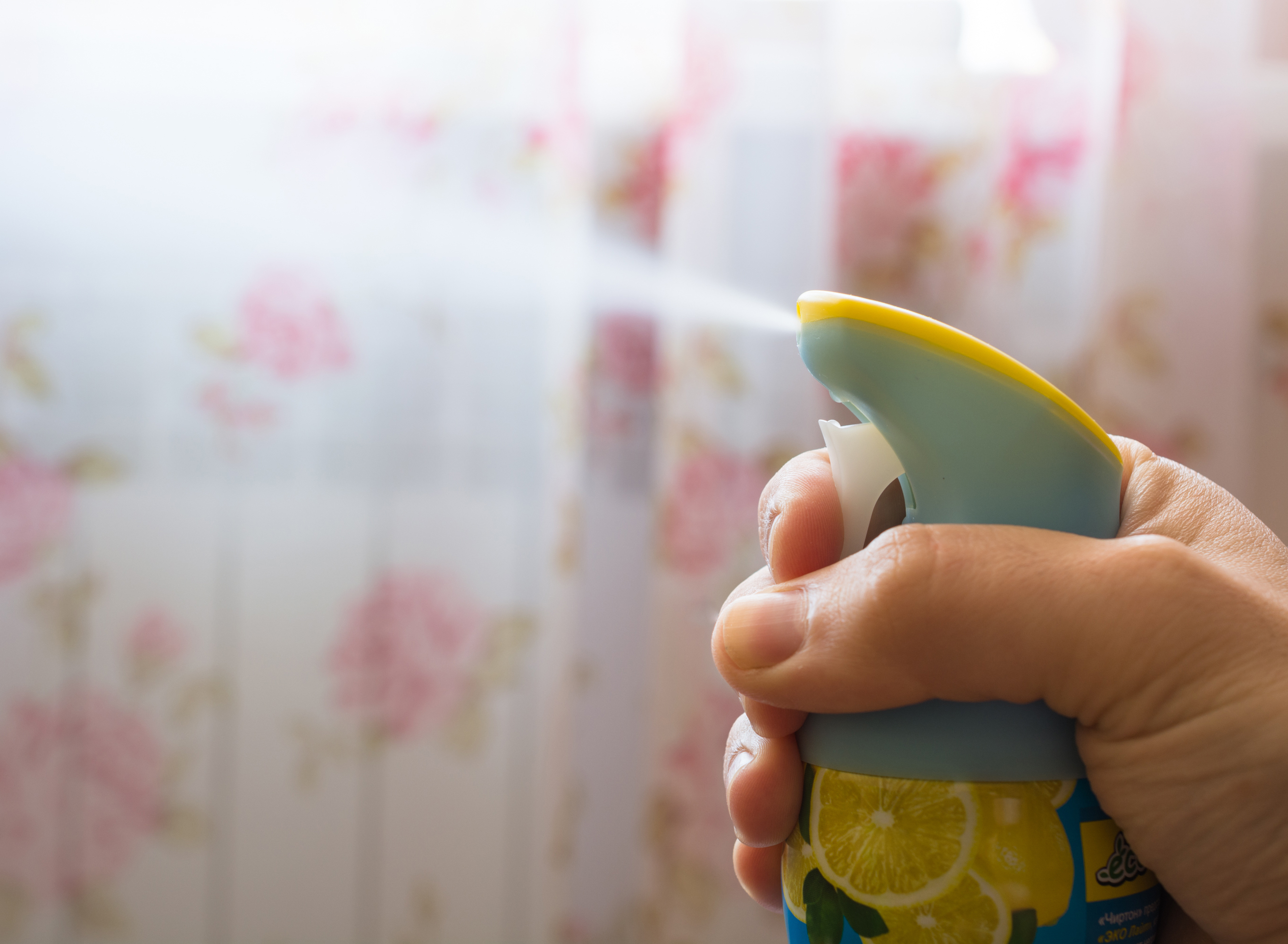
You may not realize that certain items you're using in your home to make things smell nice actually contain chemicals that can be poisonous to your dog. David Ewart, an interior designer for Pavilion Broadway in England, says any pet owner should be diligent in checking out the ingredients in these products.
"We would always suggest double checking any air fresheners, incense, or candles that you buy to ensure that they are not toxic for dogs," Ewart says. "Opting for a well-tested and ideally organic room scent or a diffuser is typically safe since many of these use essential oils and are safe for both human and animal inhalation."
13
Liquid Potpourri
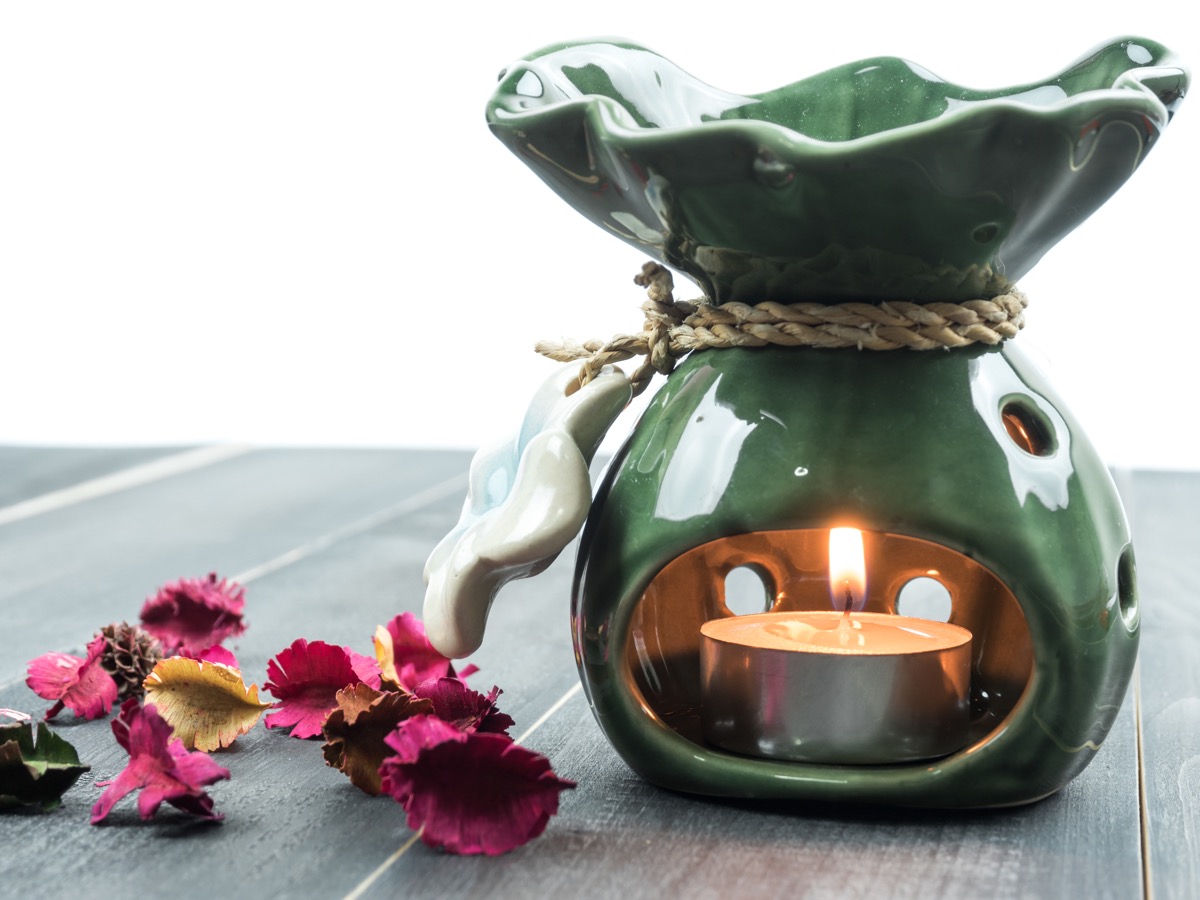
Specifically, dog owners should steer clear from using liquid potpourri. According to the AVMA, most liquid potpourri products have harmful ingredients that can cause oral ulcerations and other health problems for your dog.
14
Easy-Access Trash Cans
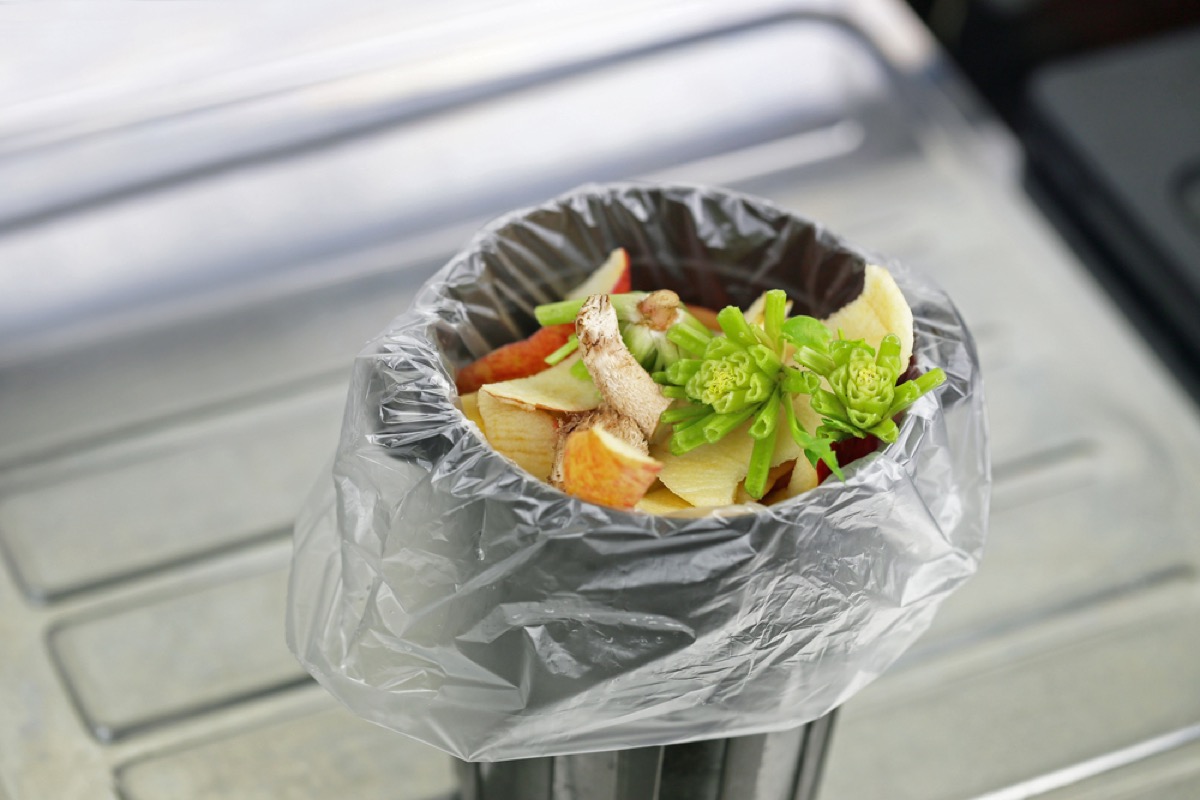
We're not saying you should get rid of all your trash cans when you get a dog, but you should be mindful of the types of trash cans you own. Trash cans with easy-access openings translate to easy pet access.
"Replace all your open-top and swing-lid trash cans with ones that have foot pedals," recommends Jacob Dayan, co-founder of Finance Pal and a dog dad of four. "This prevents your pup from getting into the trash and potentially getting ahold of something toxic. Personally, my dog loves ripping napkins and paper towels into tiny little pieces. Having a trash bin with a foot pedal prohibits her from getting in the trash and making a mess."
15
Portable Heaters
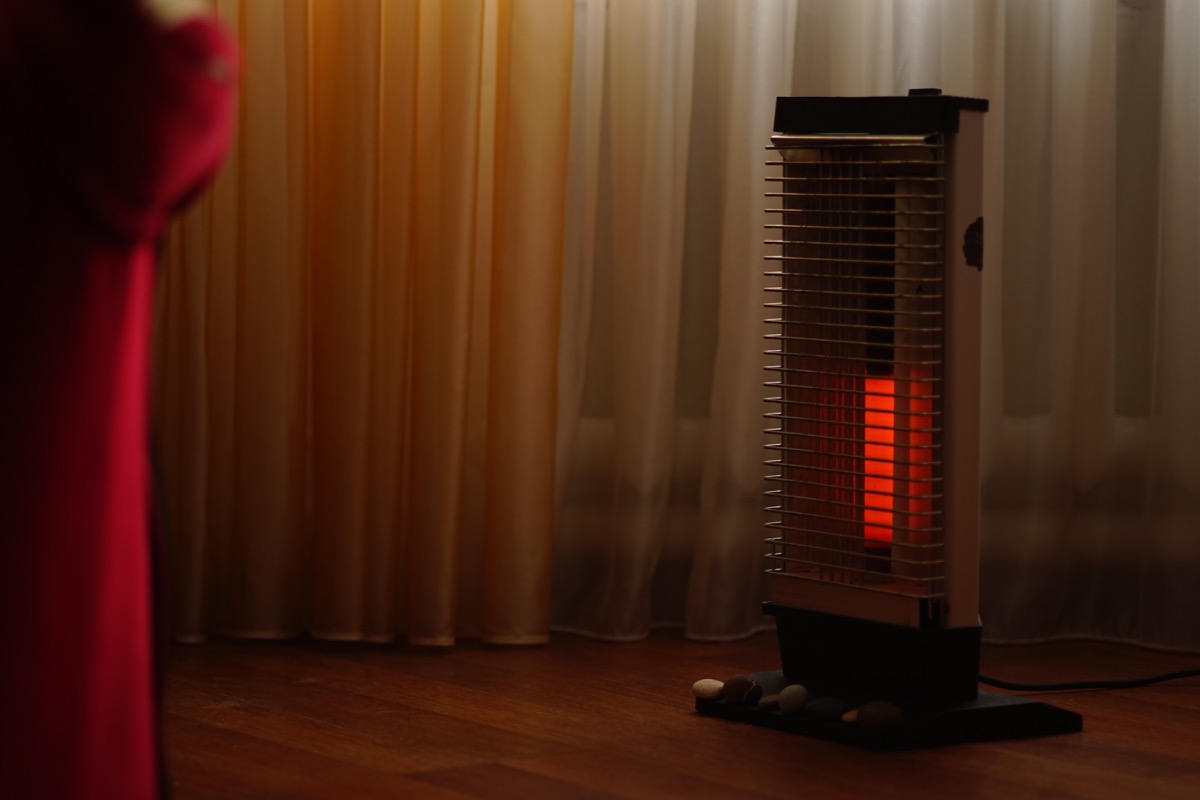
The PDSA warns pet owners against purchasing portable heaters. Not only could your dog knock them over and injure themselves, it's also a fire hazard for your home. Instead, consider safer alternatives like overhead heating or insulated heating within your walls or flooring.
16
Unprotected Medicine
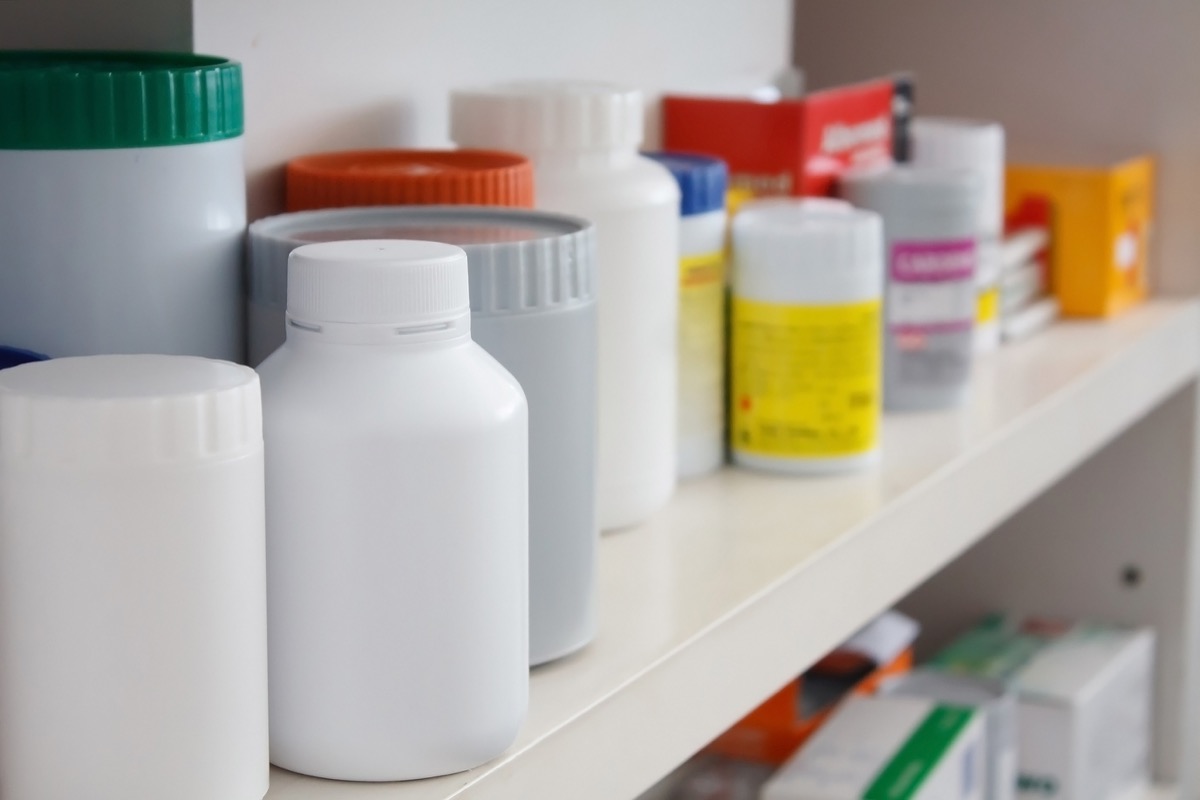
While both over-the-counter and prescription medicines might be necessary and helpful for you to keep in your home, dog owners should exercise extra precaution because many of these medications can be toxic or fatal to dogs. No dog owner should ever have an unprotected medicine cabinet in their home. "For example, blood pressure medicines can cause seizures, while even common pain relievers, like Tylenol, can result in permanent damage to the liver," says Bukovza. "Always keep all your medicine safely locked away in a cabinet well our of your dog's reach."
17
Grapes, Avocado, and Other Food Items
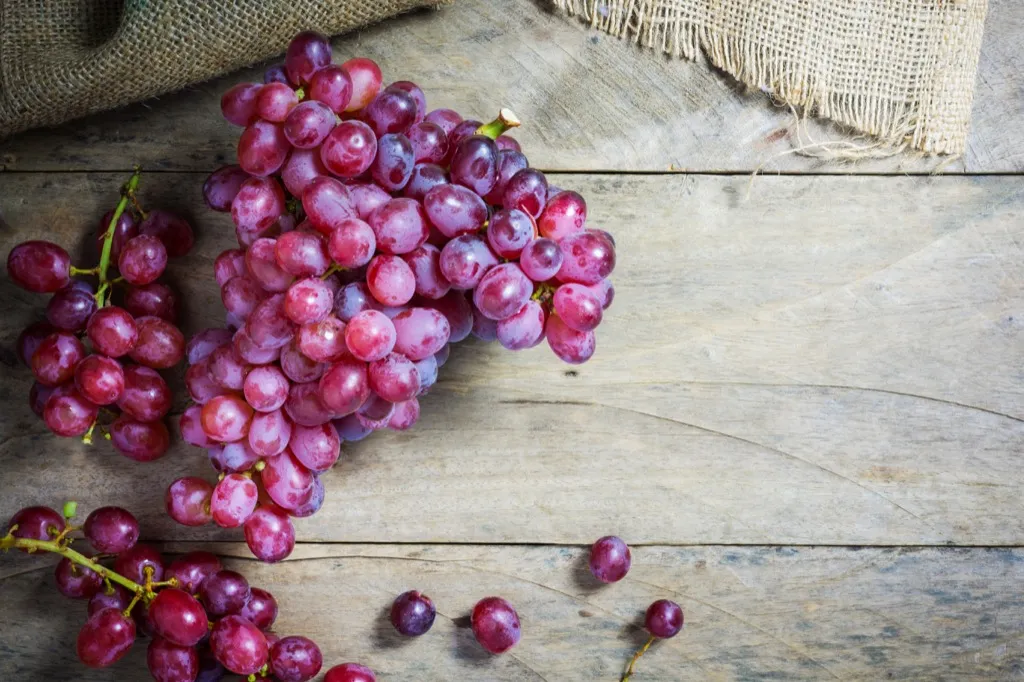
Chocolate isn't the only food that Fido should steer clear of. Per the PDSA, caffeine in large quantities can harm your dog's heart, and foods like grapes, currants, raisins, and sultanas contain toxins that are potentially fatal. Other foods they suggest to keep away from your pet include onions, garlic, chives, avocados, peanuts, and salt. In other words: Just stick with some good ol' dog food. And for more ways to be a better pet owner, here are all The Foods You Should Never Feed Your Dog.
To discover more amazing secrets about living your best life, click here to follow us on Instagram!
